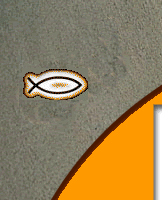| Note:
Some Links may be out of date.
Blitz
Ezine # 182 September 30, 2002
Note:
This is an archived issue. Some links and/or content
may be outdated
The
Blitz-Promotions News Letter.
Issue no. 182, Sept. 30, 2002
************
In This Issue **************
Comments
Food for thought
Articles
The Classifieds
Next Issues
++++++++++++++++++++++++++++++++
Blitz Comments
++++++++++++++++++++++++++++++++
New
this week -
Lots
of good stuff in this issue - hopefully you'll be able
to find something you can use to improve your business.
This includes:
Using
Alexa to improve your SEO.
Our
Newbie guide Part 2 (choosing your niche) - may help
some of the Old-timers as well.
Guest
Article - Make your business stand out from the crowd.
We'll
be dedicating our October Issues to ways you can increase
your sales this holiday season.
Food for thought
+++++++++++++++++
A
reputation is something that you have to earn every
day. It's not something that you just have and that
you keep automatically.
Truett Cathy
Founder and Chairman of Chick-fil-A
+++++++++++++++++++
+++++++++++++++++
Alexa and how to use it to your advantage.
+++++++++++++++++
Alexa
is a powerful tool you can use to help build your search
engine rankings. One important note is that I recommend
that you DON'T (it contains some spyware programs that
you don't need) download the program, you can use it
online just as easily.
Alexa
can be found here -
http://www.alexa.com/
Again
a reminder, you don't have to download the toolbar,
you can get plenty of information on the site.
1.
Checking your sites ranking.
To check your sites ranking just enter your url in the
search box.
I'll use my wife's site as an example - www.crochetnmore.com
The
Results page has quite a bit of nice info -
The Average review tells you what people are thinking
about your site. In Lisa's case it is five stars, which
is a good thing.
Average traffic rank tells you the ranking within Alexa
- note it takes these rankings from folks that use the
Alexa toolbar. Don't worry if your site is a really
high number, your goal should be to gradually lower
this number and to track your progress.
The
People Who visited this site also visited list is a
good place to start thinking about some joint ventures
and / or projects with other webmasters.
2.
Work on your links.
Enter your search terms in the box.
We searched for crochet - then click on a sites info
- this is the top hyperlinked line. In our case we're
checking out crochet.org. One other note is that the
sponsored listings to the right come from Google Ad
Words.
Click
on Related links - you'll again find the people who
visited this site also visited .... check those sites
out. If they have a link page, ask them for a link.
3.
Find out what people are searching for on the web.
At the top of the menu you'll find two buttons - the
Top 500 and Movers and Shakers. Click on these tabs
gives you a good idea of the sites that get a lot of
traffic and may give you some expansion ideas or some
ideas for alternate avenues of revenue.
I
usually start searching the sites between 101 - 200.
Be careful though as you click around, some sites definitely
don't have family friendly.
+++++++++++++++++
Newbie Guide Part 2 - Picking your niche continued
+++++++++++++++++
1.
Picking your niche - the next step.
From
last weeks lesson you should now have a list of things
you like to do and/or are good at. Review your list
and cross off anything that you wouldn't want to spend
several hours a day or when you get to that point, the
whole day dealing with. You should try to narrow your
list down to 5-10 things.
An
example
Let's
say that here is the list you come up with -
Like
to fish
Am good at making homemade lures
Know the best spots to fish in most of the lakes
Like to play computer games
Can beat anyone playing role playing games
You
should find that your likes revolve around a couple
of subjects. For the time being don't even think of
ways to make money with it, just think about what you
like to do.
So
the subjects we like in the example above would be fishing
/ lures and computer role playing games.
Taking
that information we're now going to see if people on
the Internet are interested in our subjects.
Before
you do the following make sure you have a full day that
you can devote to the project. You'll be using wordtracker
which has a one day subscription plan for $6.54 - but
you will want a day you can dedicate to the project.
We'll be using wordtracker to find out many things including:
How
many folks are searching for a particular term.
How much competition you have for those words.
Suggestions for alternative keywords.
Here's
how to do it -
1. Go to wordtracker and create an account.
http://www.wordtracker.com
2.
Once you've signed up for an account, and started a
new database, you'll come to a screen with three frames.
The left frame is your search frame, the right frame
will be your results frame, the bottom frame gives you
some other information.
3.
First thing to do is think broad and type in a term
in the left hand box - make sure that lateral and thesaurus
is checked. So in my case we'll check out fishing -
so we type fishing in the box.
This
will give you a list of related terms - we'll say that
we can tie fly fishing lures - so we click on fishing
and a new box appears in the right frame. Click on any
word that you think may be related. This word will then
be transferred to your keywords basket.
When
you've went through the list in the right frame, then
click on another term in the left hand frame, and continue
on till you're finished with the list.
4.
When you're finished with that click on the Step 3 link
in the bottom frame. You should have your keywords listed
an their counts. But we're not finished yet, now we
want some traffic counts and competition results. So
click the competition search link near the top right
of the page.
5.
Put a check mark in the Google box and click proceed.
6.
This will present you with a nice list of estimated
traffic and your competition. Here were the top five
listings for fly fishing.
1
"fly fishing supplies" 185.083== 407== 96== 895
2 "fishing knots" 139.594== 1883== 443== 25400
3 "fly fishing knots" 108.928== 526== 124== 2540
4 "fishing knot tying" 100.125 ==188== 44== 353
5 "fishing lures" 53.851 == 1327 == 312 == 32700
I
put the == sign in the listings above - let's take a
moment to dissect one of the listings.
1
"fly fishing supplies" 185.083== 407== 96== 895
1
- these are just listing numbers in the order of KEI
2 - fly fishing supplies is the term
3. 185.083 is the KEI - this is a relationship between
the number of times the term is searched for and the
number of competitors.
4. 407 - this is just the number of times it is found
in a database.
5. 96 - estimated number of searches in a 24 hour period.
6. 895 is the number of competitors.
So
how can you use the numbers.
1. Make sure you have at least 25 or so listings with
a KEI above 50 or better still above 100. If all your
KEI numbers are low, then you either have a niche with
a lot of competitors, no searches, or both. So try again.
So
in our case fly fishing has an excellent market and
next week we'll start to explore our niche.
If
you have any questions, as always don't hesitate to
ask.
+++++++++++++++++
Guest Articles
+++++++++++++++++
Unique
Internet Marketing Stands Out From The Crowd
Copyright © 2002
Joshua Rose
Several years ago, I went whale watching in Bar Harbor,
Maine, while on vacation. I remained in the large, central
cabin with my poor seasick infant son when a whale was
finally spotted.
The
Captain announced, "Whale to the starboard", and a mini-stampede
of about 70 tourists scampered over just in time for
the briefest of glimpses as it quickly submerged again.
Everyone jostled and jockeyed for position to get the
perfect camera shot for when that darn whale resurfaced.
But
of course, it wasn't going to work out this way. "Whale
to the port side", announced the Captain, and the stampede
to the other side literally tipped the boat. Naturally,
the whale had disappeared by then as well.
This
went on like this -- back and forth -- for about twenty
minutes. The whale seemed to be toying with human nature
-- the tendency for people to do what everyone else
was doing.
And EVERYONE was zigging when they should have been
zagging. There were no 'individuals'. They moved as
a group in their futile quest to snap off a clear and
revealing shot.
Are
you moving with the crowd on the internet, or are you
striking out on your own unique path, one more likely
to get noticed?
If you observe your own specific Internet marketplace,
it's very likely you'll find that the vast majority
of the 'crowd' are doing the sames things in the same
ways -- and they're also getting the same poor results.
This
presents a golden opportunity to be noticed by doing
things differently.
Successful entrepreneurs, both online and off, are innovators
and risk takers. They *experiment*, *evaluate* and *evolve*
until they successfully convey that both who they are
and what they offer is unique in the marketplace, despite
all the competition.
To
seperate yourself from the pack, you need to look at
every aspect of your Internet marketing effort and ask
yourself, "What's unique about this?" And, "How does
this contribute to my own unique web presence?"
Here's
some important areas to look at to get you started.
* Are you playing it safe and trying to please and sell
everyone, and consequently selling to almost no one?
* Why should your prospects believe YOU when they are
skeptical of so many others?
* How about your ezine? Is it similar to countless others
or is there a unique theme or tone running through it?
* While your ads may be well written, is the overall
message very much the same as the pack?
* How is your sales page unique? And have you given
it a measured dose of your own personality?
This
process of developing a distinct 'uniqueness' is subjective,
involves risks, takes work to implement, and time to
evaluate and change again if necessary. But in doing
so, you will develop the factors crucial to successfully
setting yourself apart in a very competitive marketplace.
Back
onboard, my wife took a chance and went to the OTHER
SIDE of the boat, alone. Sure enough, the whale popped
up for a few seconds, she got the shot, and that was
the last that was seen of that whale, or any other,
for the rest of the trip. There were alot of unhappy
tourists grumbling on the way back.
Stand
out from the crowd. Move to the empty side of the boat
-- and you'll stand a much better chance of getting
your picture of the whale.
Joshua
Rose is the Editor of The Internet Profit Wizards Newsletter,
where he writes about the three most important skills
to develop for attaining Internet success.
To
subscribe, visit:
http://www.internetprofitwizards.com
|
















